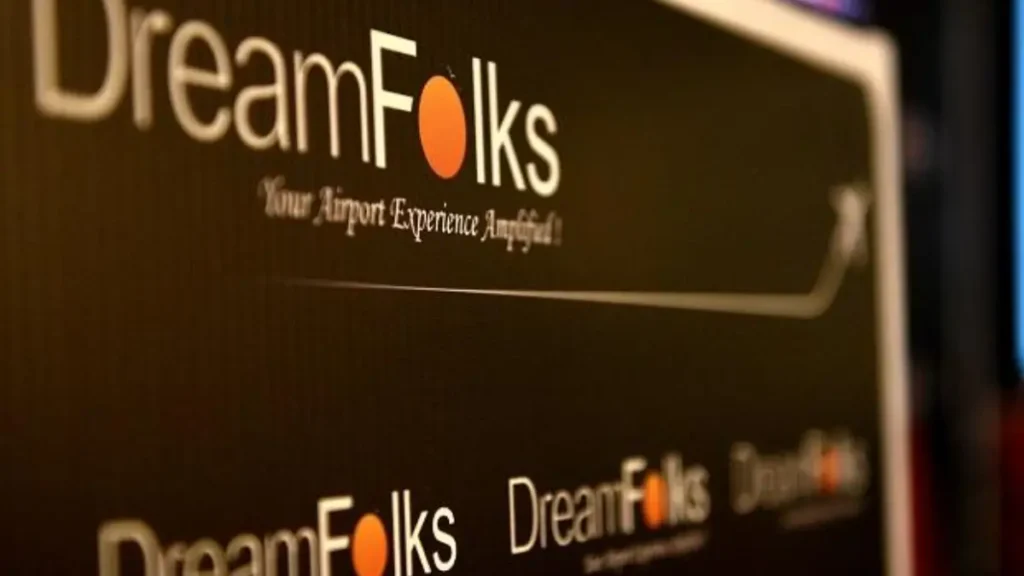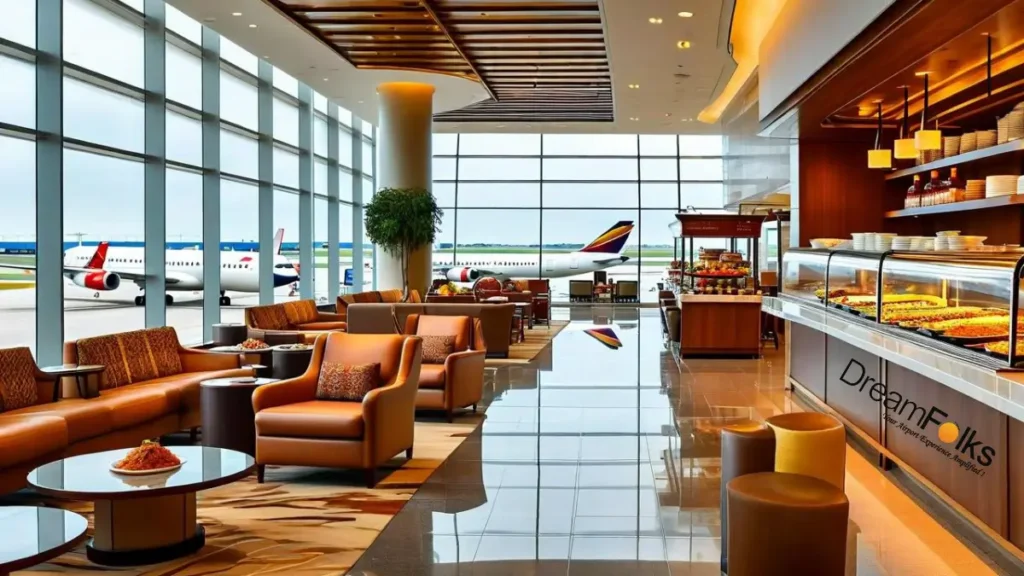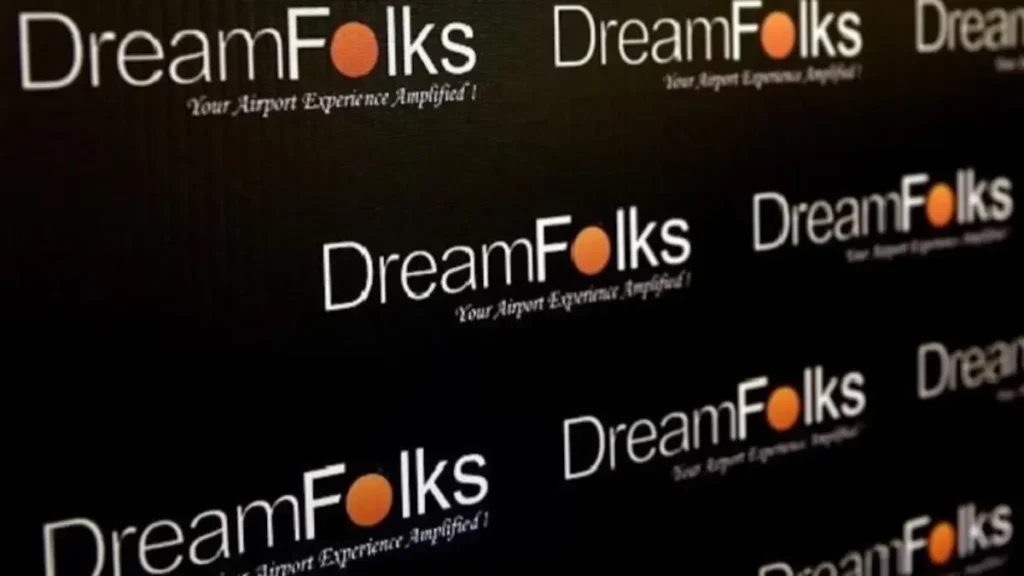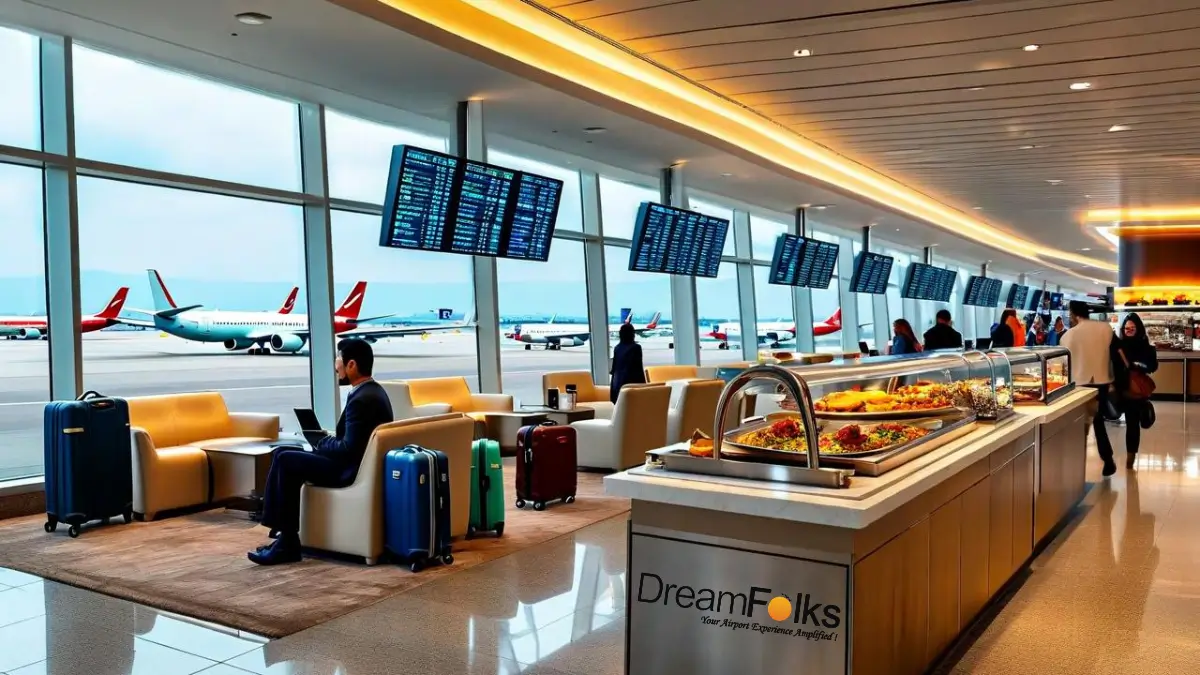Dreamfolks Services, India’s largest airport service aggregator, witnessed a sharp decline in its stock on Wednesday after the company announced that it will discontinue domestic airport lounge services for its clients effective September 16. Shares of the company were locked in a 5% lower circuit at ₹131 on the BSE, triggering concerns among investors about the company’s future revenue streams.

Exit from Domestic Lounges Raises Investor Concerns
The company confirmed in an exchange filing that it will no longer offer domestic airport lounge access, a service that has historically been one of its most popular offerings for banks, card issuers, and corporate clients.
Dreamfolks emphasized that the impact of this exit would be “material” for its business. However, it assured stakeholders that other domestic services—such as food and beverage tie-ups, spa facilities, baggage transfer, and airport assistance—as well as its global lounge operations will continue as usual.
The company clarified that all existing contracts with clients remain intact and that discussions are underway to design alternate value propositions to replace the lounge services.
Background: Key Partners Pull Out
The decision follows the withdrawal of multiple suppliers and operators from their contracts. In August, some of Dreamfolks’ prominent partners—including Travel Food Services, Adani Digital, Semolina Kitchens, and Encalm Hospitality—terminated or discontinued their agreements. This left the aggregator with limited options, eventually forcing it to pull out of the domestic lounge aggregation space.
Adding to the pressure, Dreamfolks also lost support from major banking partners. In July, Axis Bank and ICICI Bank scaled back their lounge-related partnerships with the company.
Industry experts suggest that this move marks a major shift in India’s airport lounge landscape, as domestic lounge access has traditionally been a high-demand feature bundled with credit cards and corporate travel programs.
Financial Performance Amid Operational Shifts
Despite the operational setback, Dreamfolks has managed to maintain growth in recent quarters. In Q1 FY26, the company posted a 23.79% rise in consolidated net profit, reaching ₹21.28 crore compared to the same period last year. Revenue for the quarter increased by 8.77% to ₹348.95 crore.

However, analysts believe that the discontinuation of domestic lounge services—once a core revenue driver—will put short-term pressure on margins until alternative offerings scale up.
Market Reaction: Stock in Freefall
On Wednesday morning, over 47,000 shares of Dreamfolks changed hands on the BSE, significantly higher than its two-week average trading volume of 14,000 shares.
The stock, which has been under pressure for much of 2025, extended its losses with the announcement. Dreamfolks shares are now down nearly 66% year-to-date, reflecting growing investor unease about the company’s evolving business model.
The latest drop pushed the stock into a 5% lower circuit at ₹131, compared to the previous day’s closing of ₹138. Market participants remain cautious, awaiting clarity on how the company plans to replace lost revenue from domestic lounges.
Retail Sentiment Remains Surprisingly Positive
Interestingly, data from Stocktwits, a social investor community, revealed that retail sentiment remains bullish on Dreamfolks despite the recent slide. Trading discussions on the platform have been marked by “extremely heavy” message volumes over the past week, suggesting that some investors still see long-term value in the company.
Market watchers believe that investors are hopeful about Dreamfolks’ global lounge expansion strategy, which could offset domestic setbacks over time.
Dreamfolks’ Core Business Beyond Lounges
While lounge access has been Dreamfolks’ most visible offering, the company has gradually diversified its service portfolio. Its clients include major card networks, banks, online travel agents, airlines, and enterprises.
Key services still available through Dreamfolks include:
- Airport lounges (global only)
- Food & beverages at airports
- Spa and wellness services
- Meet & assist services
- Airport transfers & baggage handling
- Access to transit hotels and nap rooms
By leveraging its aggregator model, the company connects travelers with a wide range of premium airport experiences. The challenge now lies in scaling these alternative services to fill the revenue gap left by domestic lounges.
Analysts’ Outlook: What Lies Ahead?
Analysts remain divided on Dreamfolks’ future. On one hand, the loss of domestic lounges removes a major competitive advantage. On the other, the company’s global focus and strong partnerships with international lounges could help it carve a niche in premium travel services.

Experts note three key factors to watch in the coming quarters:
- Client Retention – Whether banks and corporates continue partnerships despite the lounge exit.
- Global Expansion – How quickly Dreamfolks scales up its international offerings.
- New Value Propositions – The success of replacement services being discussed with clients.
If Dreamfolks manages to pivot effectively, it may still retain its leadership as an airport service aggregator, albeit with a changed business mix.
The exit from domestic airport lounges marks a significant turning point for Dreamfolks Services. While the move has rattled investors—sending the stock into a 5% lower circuit and erasing two-thirds of its market value in 2025—there are signs that the company is actively restructuring its business model.
With a strong presence in global lounges and a diverse portfolio of airport-related services, Dreamfolks still has opportunities to regain investor confidence. However, its ability to quickly roll out effective alternatives will determine whether the company can overcome this turbulence.
Disclaimer
This article is for informational purposes only and should not be taken as investment advice. Readers are encouraged to conduct their own research or consult with a financial advisor before making any investment decisions.

